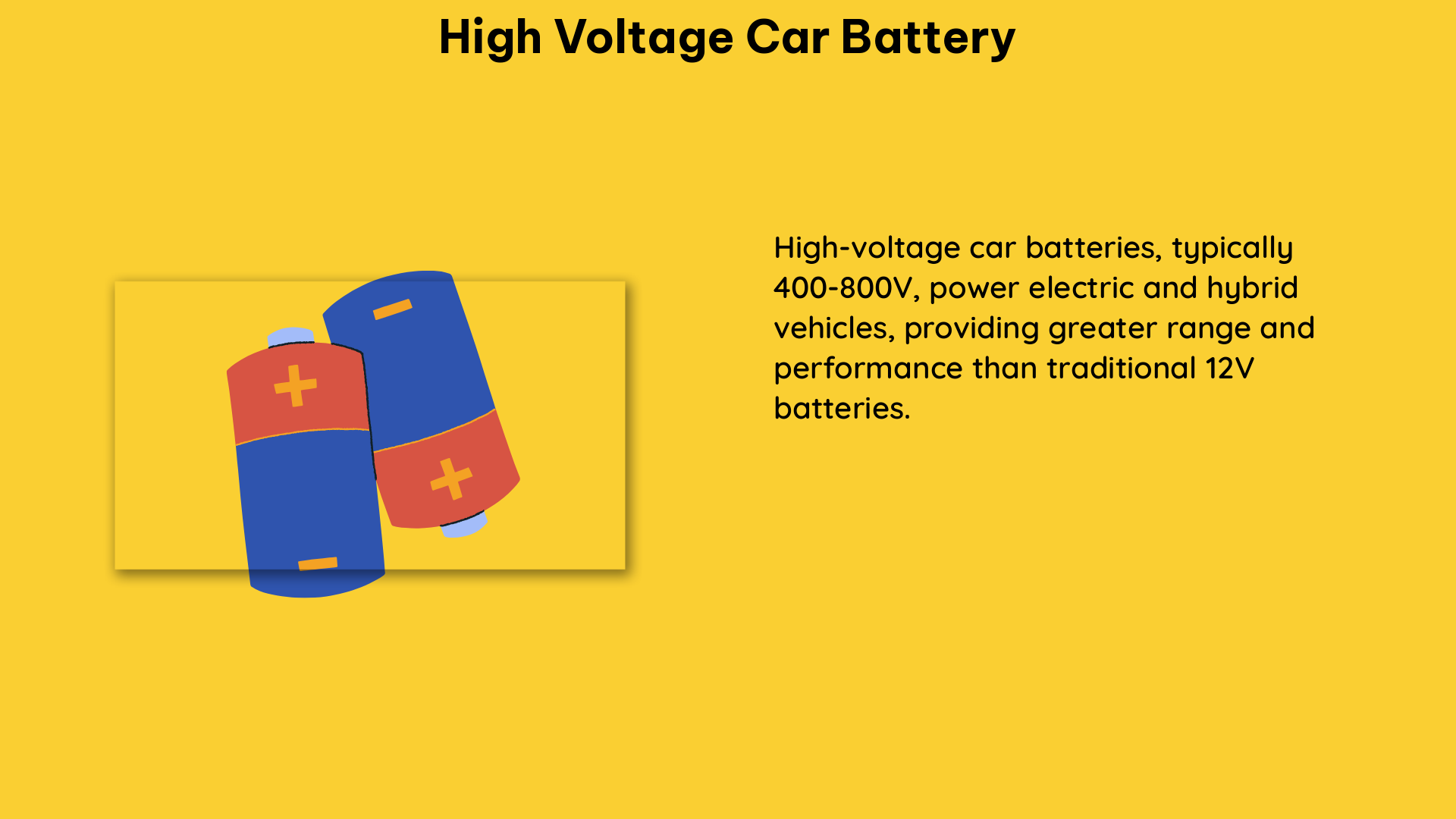High voltage car batteries, also known as traction batteries, are the backbone of electric vehicles (EVs) and hybrid electric vehicles (HEVs), providing the necessary power to propel these vehicles. These advanced batteries are designed to withstand the demanding voltage and current requirements of these applications, offering a range of measurable and quantifiable characteristics that make them a crucial component in the world of sustainable transportation.
Voltage and Capacity
The voltage rating of high voltage car batteries typically ranges from 300 to 400 volts, with some models reaching up to 800 volts or more. This high voltage is essential to power the electric motors and other electrical systems in EVs and HEVs. The capacity of these batteries, measured in ampere-hours (Ah), indicates the amount of energy they can store. Typical capacities range from 20 Ah to 100 Ah, depending on the size and type of the battery.
Power Density and Efficiency

Power density is a crucial metric for high voltage car batteries, as it determines how much power the battery can deliver per unit of volume or weight. These batteries typically have a power density of around 2-3 kW/kg, although some newer models have achieved even higher values. The efficiency of a high voltage car battery, which refers to the ratio of energy output to energy input, typically ranges from 85% to 95%, depending on the battery chemistry and operating conditions.
Charge and Discharge Rates
The charge and discharge rates of high voltage car batteries are measured in C-rates, which indicate how quickly the battery can be charged or discharged. A C-rate of 1 means that the battery can be fully charged or discharged in one hour. Typical charge/discharge rates for these batteries range from C/2 to 2C, allowing for rapid charging and discharging as needed.
Cycle Life and Temperature Range
The cycle life of a high voltage car battery is the number of charge/discharge cycles it can perform before its capacity drops below a certain threshold, typically 80%. These batteries typically have a cycle life of around 1,000 to 3,000 cycles, depending on the battery chemistry and operating conditions. High voltage car batteries must also be able to operate within a wide temperature range, typically from -30°C to +60°C, often requiring specialized cooling or heating systems to maintain a stable temperature.
Safety Features
Ensuring the safety of high voltage car batteries is of paramount importance. These batteries are equipped with various safety features, such as overvoltage protection, overcurrent protection, and short-circuit protection, to prevent electrical hazards and maintain the integrity of the battery system.
Testing and Validation
In addition to the technical specifications, high voltage car batteries undergo extensive testing and validation to ensure their performance, safety, and durability. This includes electrical testing (voltage, current, resistance, and impedance measurements), thermal testing (temperature cycling and thermal shock testing), and mechanical testing (vibration and shock testing) to ensure the batteries can withstand the rigors of real-world driving conditions.
Advancements and Future Trends
The field of high voltage car batteries is rapidly evolving, with ongoing research and development aimed at improving energy density, power density, cycle life, and safety. Emerging battery technologies, such as solid-state batteries and lithium-ion batteries with silicon anodes, are promising avenues for further advancements in high voltage car battery performance.
As the demand for electric and hybrid vehicles continues to grow, the importance of high voltage car batteries will only increase. Understanding the technical specifications and the testing and validation processes involved in these batteries is crucial for engineers, technicians, and enthusiasts alike to ensure the safe and reliable operation of these advanced energy storage systems.
Reference:
- EV Battery Testing | Tektronix
- Quantifying the state of the art of electric powertrains in battery electric vehicles: Range, efficiency, and lifetime from component to system level of the Volkswagen ID.3
- Electric Vehicle Batteries: Status and Perspectives of Data-Driven Diagnosis and Prognosis

The lambdageeks.com Core SME Team is a group of experienced subject matter experts from diverse scientific and technical fields including Physics, Chemistry, Technology,Electronics & Electrical Engineering, Automotive, Mechanical Engineering. Our team collaborates to create high-quality, well-researched articles on a wide range of science and technology topics for the lambdageeks.com website.
All Our Senior SME are having more than 7 Years of experience in the respective fields . They are either Working Industry Professionals or assocaited With different Universities. Refer Our Authors Page to get to know About our Core SMEs.